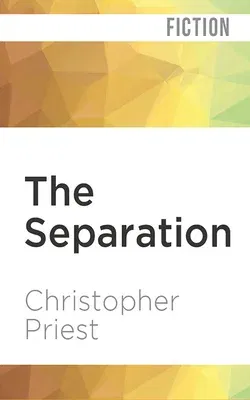Christopher Priest
(Author)The SeparationCompact Disc, 2 July 2019

Qty
1
Turbo
Ships in 2 - 3 days
In Stock
Free Delivery
Cash on Delivery
15 Days
Free Returns
Secure Checkout

Language
English
Publisher
Audible Studios on Brilliance
Date Published
2 Jul 2019
ISBN-10
172134425X
ISBN-13
9781721344253
Description
Product Details
Author:
Book Format:
Compact Disc
Country of Origin:
US
Date Published:
2 July 2019
Dimensions:
13.97 x
16.51 x
2.87 cm
ISBN-10:
172134425X
ISBN-13:
9781721344253
Language:
English
Publisher: